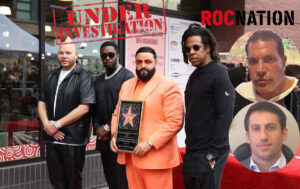The legal battle centers around allegations stemming from Lamar's controversial track "Not Like Us."
**Drake Granted Access to Kendrick Lamar's Contracts in Defamation Case**

**Drake Granted Access to Kendrick Lamar's Contracts in Defamation Case**
In a pivotal ruling, a judge has allowed Drake to obtain sensitive records related to Kendrick Lamar's music amid an ongoing defamation dispute.
Drake, the leading figure in modern hip-hop, has been granted access to key documents from Universal Music Group (UMG) as he presses on with his defamation lawsuit against Kendrick Lamar due to the song "Not Like Us." Drake's legal team is seeking copies of Lamar's recording contracts and detailed financial records of senior UMG executives, alleging that the song has maliciously painted him as a paedophile—a claim he categorically denies.
Last month, UMG attempted to dismiss the case, calling it an "illogical" effort to undermine Lamar's artistic expression. The label also requested a halt to evidence collection while the dismissal was reviewed. However, Judge Jeannette A Vargas ruled this week that evidence gathering should continue, prompting celebration from Drake's legal counsel, who indicated that they were eager to uncover what UMG has been reluctant to disclose.
Drake is pursuing records reflecting all contracts involving UMG and Kendrick, as well as the compensation structures for key executives dating back to 2020. UMG has pushed back against these requests, stating that collecting such commercially sensitive information is both burdensome and unnecessary while the case is still pending the potential dismissal. A hearing around this dismissal is set for June 30.
The tension between Drake and Lamar has been brewing for quite some time, characterized by an exchange of subliminal disses in their music. The dispute escalated when Drake insinuated abuse within Lamar’s circle, leading Lamar to respond in "Not Like Us," in which he labeled Drake and his associates in a derogatory manner.
Drake's filing alleges that UMG was well aware of the falsehood behind Lamar's lyrics yet chose to promote them for financial gain. This accusation includes a claim of collusion with Spotify to inflate streaming metrics—allegations both companies refute. UMG defended its position by stating that the claims were baseless and underscored their long-standing relationship with Drake, emphasizing that the rapper has utilized UMG’s platform for his musical provocations.
The song "Not Like Us" has achieved unprecedented success for Lamar, breaking into the UK charts as his first number one single, particularly following a stunning performance at the Super Bowl Half-Time Show in February.
In a broader context, this lawsuit sheds light on the complexities of artistic expression in the music industry and the potential repercussions of lyrical content in the courtroom.
The ongoing dialogue between legal issues and artistic freedom is far from over as both parties prepare for the next legal proceedings.
Last month, UMG attempted to dismiss the case, calling it an "illogical" effort to undermine Lamar's artistic expression. The label also requested a halt to evidence collection while the dismissal was reviewed. However, Judge Jeannette A Vargas ruled this week that evidence gathering should continue, prompting celebration from Drake's legal counsel, who indicated that they were eager to uncover what UMG has been reluctant to disclose.
Drake is pursuing records reflecting all contracts involving UMG and Kendrick, as well as the compensation structures for key executives dating back to 2020. UMG has pushed back against these requests, stating that collecting such commercially sensitive information is both burdensome and unnecessary while the case is still pending the potential dismissal. A hearing around this dismissal is set for June 30.
The tension between Drake and Lamar has been brewing for quite some time, characterized by an exchange of subliminal disses in their music. The dispute escalated when Drake insinuated abuse within Lamar’s circle, leading Lamar to respond in "Not Like Us," in which he labeled Drake and his associates in a derogatory manner.
Drake's filing alleges that UMG was well aware of the falsehood behind Lamar's lyrics yet chose to promote them for financial gain. This accusation includes a claim of collusion with Spotify to inflate streaming metrics—allegations both companies refute. UMG defended its position by stating that the claims were baseless and underscored their long-standing relationship with Drake, emphasizing that the rapper has utilized UMG’s platform for his musical provocations.
The song "Not Like Us" has achieved unprecedented success for Lamar, breaking into the UK charts as his first number one single, particularly following a stunning performance at the Super Bowl Half-Time Show in February.
In a broader context, this lawsuit sheds light on the complexities of artistic expression in the music industry and the potential repercussions of lyrical content in the courtroom.
The ongoing dialogue between legal issues and artistic freedom is far from over as both parties prepare for the next legal proceedings.




















